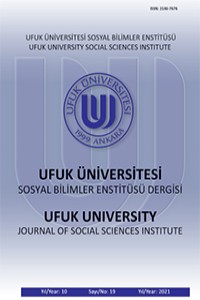Öz
İkinci Dünya Savaşı sonrası stratejik amaçlı kurulan Avrupa Ekonomik Topluluğu (AET) bugün işlevi, kapsamı ve öncelikleri itibariyle bambaşka bir yere evrilmiş ve 21. yüzyılda yepyeni problemlerle karşı karşıya kalmıştır. Soğuk Savaş sonrası kendini tek merkezli hegemon ilan eden Amerika’ya karşı, ortak güvenlik politikası olmayan Avrupa, genişleme sürecinde daha ciddi sorunlar yaşamaya başlamış ve yeni katılan ülkelerin ekonomik, siyasi ve kültürel farklılıklarından dolayı hedeflediği Avrupa Birleşik Devletleri hayalinden gittikçe uzaklaşmıştır. Teknolojik gelişmeler, global şirketlerin varlığı, değişen güç kavramı, Asya’da parlayan yeni güçler ve üye ülkelerin birlikten çok ulusal kaygılarının öncelik kazanması, yaşanan küresel ekonomik krizin de yansımalarıyla üyesi olan ülkeler için bir güç ve itibar kaynağı olmaktan çıkıp; kendini yenilemek ve güncellemek zorunda olan hantal bir yapıya dönüşmüştür. Kendine özgü (sui generis) hukuksal çerçevesi, karar alma mekanizması, ulusal ve uluslar üstü kurumları, ekonomik, siyasi ve sosyal öncelikleri incelendiğinde; 21. yüzyılın kendine has sorunlarına alternatif çözüm üretebiliyor mu? Bu bildiride 21. Yüzyılda AB’nin karşılaştığı ana sorunlar sıralanmakta, küresel düzlemde oluşan çok merkezli uluslararası düzen içinde AB’nin kendi varlığını yeniden üretip üretemeyeceği tartışılmaktadır.
Anahtar Kelimeler
Destekleyen Kurum
Ufuk Üniversitesi
Kaynakça
- Allison, R. (2013). Russia and Syria: Explaining alignment with a regime in crisis. International Affairs, 89(4): 795-823.
- Burnham, P. (1991). Neo-Gramscian hegemony and the international order. Capital & Class, 15(3): 73-92.
- Cox, R. W. (1983). Gramsci, hegemony and international relations: An essay in method. Millennium, 12(2), 162-175.
- Göral, E. (2010). Çok kutuplu dünya düzeni arayışları: Avrupa Birliği’nin Türkiye’yi konumlandırması. İnönü Üniversitesi Yayınları.
- Heywood, A. (2014). Global politics. Macmillan International Higher Education.
- Hilmer, R. (2016). The European Union Facing Massive Challenges–What are Citizens’ Expectations and Concerns. A representative. Friedrich-Ebert-Stiftung Foundation
- Howson, R., & Smith, K. (2008). Hegemony and the Operation of Consensus and Coercion. Hegemony: Studies in Consensus and Coercion, 1-15.
- Klotz, A., & Lynch, C. M. (2014). Strategies for research in constructivist international relations. Routledge.
- Magnette, P. and Kalypso, N. (2004). The European Convention: Bargaining in the shadow of rhetoric. West European Politics, 27(3): 381-404.
- Manning, K. C., William O. B. and Thomas J. M. (1995). Consumer innovativeness and the adoption process. Journal of Consumer Psychology 4(4): 329-345.
- Nye, J. (2017). Soft power: The origins and political progress of a concept. Palgrave Communications, 3(1), 1-3.
- Perrothet, C. (2009). Immanuel Kant’s Perpetual Peace: The New World Order of Critical Philosophy, Journal of Global Development and Peace, 4-8.
- Thomson, R. (2009). Actor alignments in the European Union before and after enlargement. European Journal of Political Research, 48: 756-781.
Öz
ABSTRACT
European Economic Community (EEC), formed with a strategic purpose after the Second World War, has recently evolved into a different place regarding its function and scope, confronted with the problems of the 21st century. Against the United States claiming herself as the uni-centered hegemon after the Cold War, Europe being devoid of Common Security Policy, has experienced serious problems during the enlargement process and become distant from the idea of United Europe. As for the members of the European Union, together with the technological advancements, the increasing influence of global corporations redefined the concept of power, Asian countries having recently appeared on the international stage and the member of European Community prioritizing national concerns together with the reflection of the problems of the global economic crisis, the idea of European Union has turned into a cumbersome structure compelled to renew itself. When the sui generis legal framework, decision-making mechanism, national and supranational institutions, economic, political, and social priorities are analyzed, does the EU produce alternative solutions to the problems of the 21st century? In this paper, the problems of the 21st century are listed and whether or not the EU will be competent enough to reestablish its structure within the newly created multi-centered global order will be discussed.
Anahtar Kelimeler
The European Union 21st Century Challenges Economic Political
Kaynakça
- Allison, R. (2013). Russia and Syria: Explaining alignment with a regime in crisis. International Affairs, 89(4): 795-823.
- Burnham, P. (1991). Neo-Gramscian hegemony and the international order. Capital & Class, 15(3): 73-92.
- Cox, R. W. (1983). Gramsci, hegemony and international relations: An essay in method. Millennium, 12(2), 162-175.
- Göral, E. (2010). Çok kutuplu dünya düzeni arayışları: Avrupa Birliği’nin Türkiye’yi konumlandırması. İnönü Üniversitesi Yayınları.
- Heywood, A. (2014). Global politics. Macmillan International Higher Education.
- Hilmer, R. (2016). The European Union Facing Massive Challenges–What are Citizens’ Expectations and Concerns. A representative. Friedrich-Ebert-Stiftung Foundation
- Howson, R., & Smith, K. (2008). Hegemony and the Operation of Consensus and Coercion. Hegemony: Studies in Consensus and Coercion, 1-15.
- Klotz, A., & Lynch, C. M. (2014). Strategies for research in constructivist international relations. Routledge.
- Magnette, P. and Kalypso, N. (2004). The European Convention: Bargaining in the shadow of rhetoric. West European Politics, 27(3): 381-404.
- Manning, K. C., William O. B. and Thomas J. M. (1995). Consumer innovativeness and the adoption process. Journal of Consumer Psychology 4(4): 329-345.
- Nye, J. (2017). Soft power: The origins and political progress of a concept. Palgrave Communications, 3(1), 1-3.
- Perrothet, C. (2009). Immanuel Kant’s Perpetual Peace: The New World Order of Critical Philosophy, Journal of Global Development and Peace, 4-8.
- Thomson, R. (2009). Actor alignments in the European Union before and after enlargement. European Journal of Political Research, 48: 756-781.
Ayrıntılar
| Birincil Dil | İngilizce |
|---|---|
| Konular | Uluslararası İlişkiler |
| Bölüm | Araştırma Makaleleri |
| Yazarlar | |
| Yayımlanma Tarihi | 30 Haziran 2021 |
| Gönderilme Tarihi | 8 Nisan 2021 |
| Yayımlandığı Sayı | Yıl 2021 Cilt: 10 Sayı: 19 |


